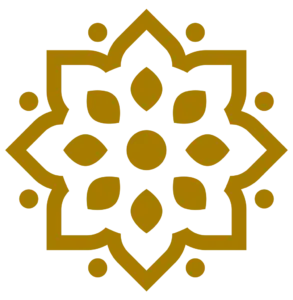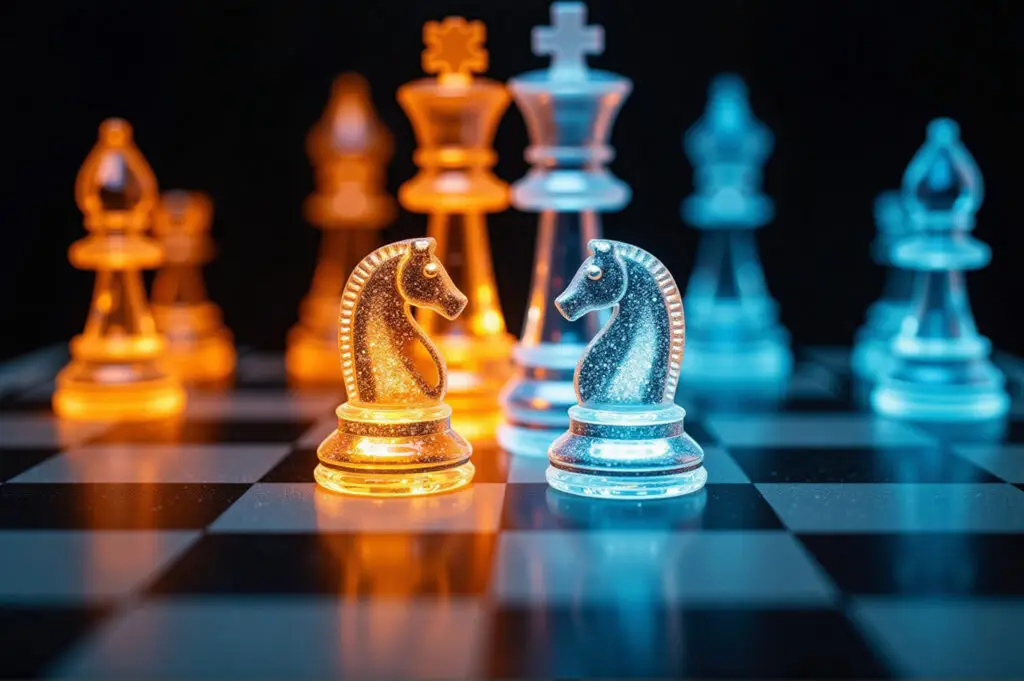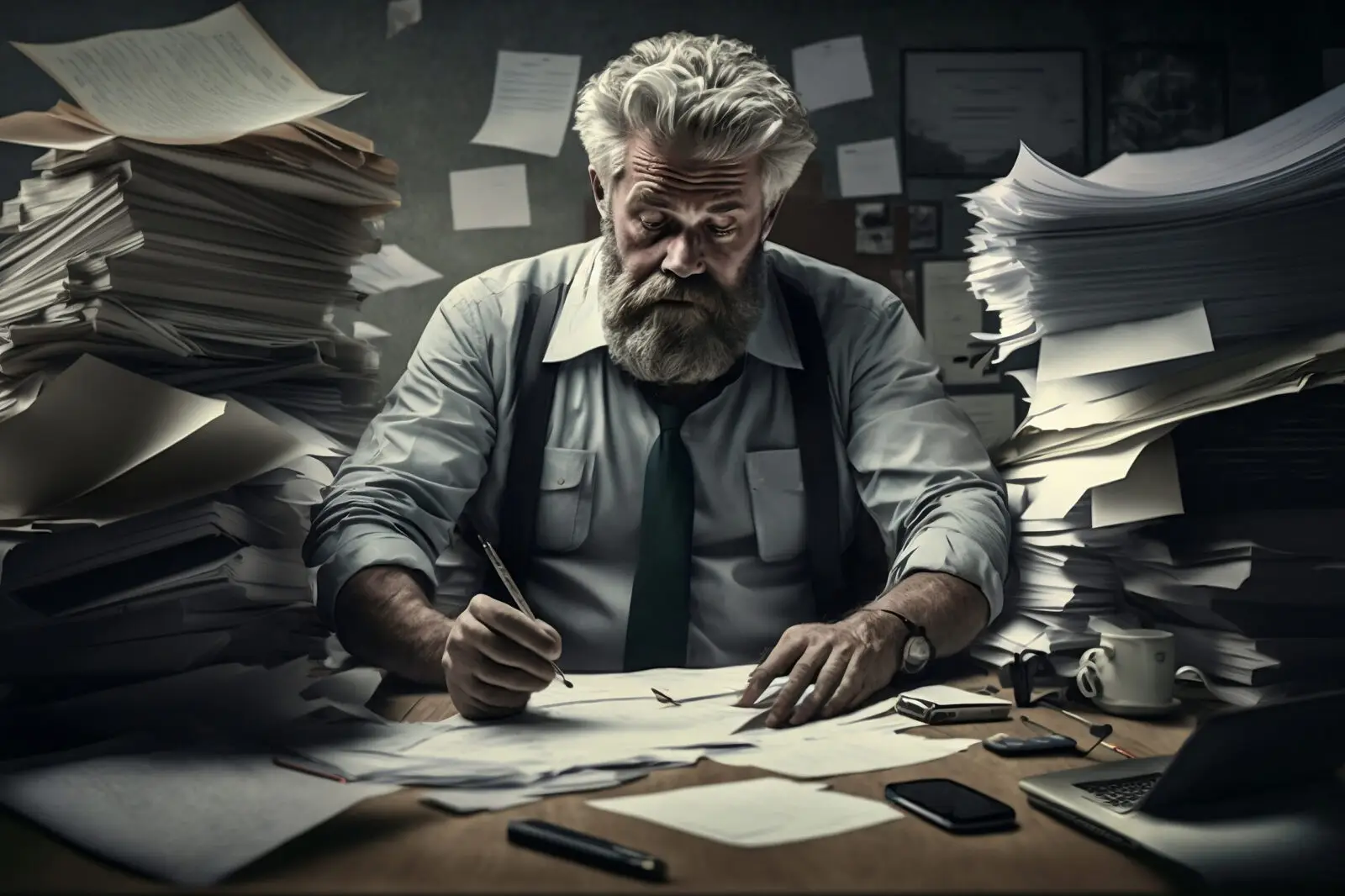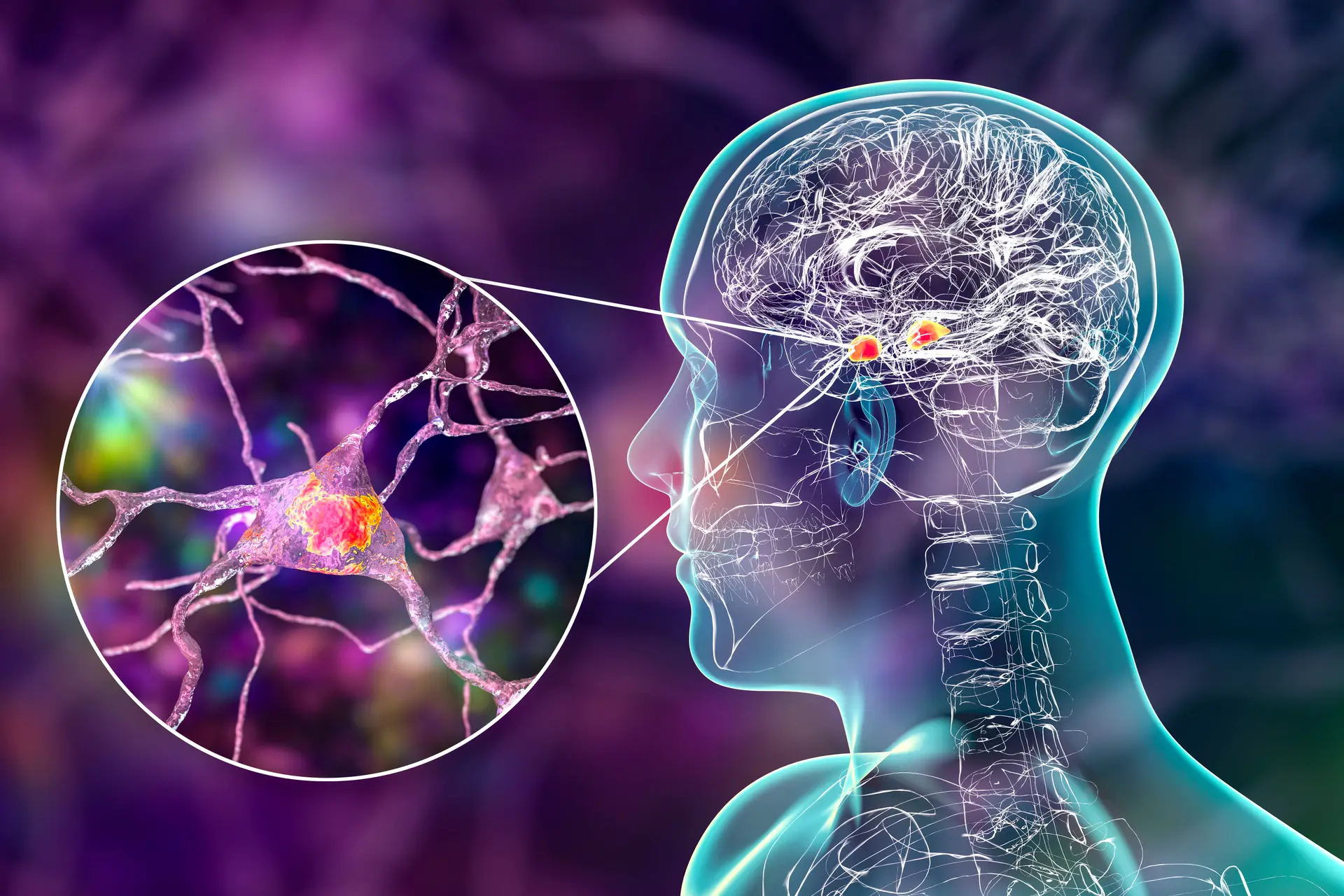The History of Archetypes
The concept of archetypes can be found in the writings of Plato over 2,000 years ago. Plato’s concept was that eidos, or ideas, were pure mental forms that were imprinted into the soul before it was born into the world. Other prominent writers have addressed the issue of archetypes over time.
Jungian Archetypes
The concept of psychological archetypes was advanced by the Swiss psychiatrist Carl Jung. Jung’s idea is that archetypes are innate and universal. The four major archetypes to emerge from his work include the anima/animus (the animus as the unconscious masculine side of a woman, and the anima as the unconscious feminine side of a man), the self (the unification of consciousness and unconsciousness in a person), the shadow (there may be some awareness of what is in the shadow but generally it is everything outside of the light of consciousness and may be positive or negative), and the persona (the mask we wear in public in order to impose a certain image of us, which may be pure fiction). Jung also referred to images of the wise old man, the child, the mother, and the maiden.
Jung believed each human mind retains these basic unconscious understandings of the human condition and also a collective knowledge which resides in the collective unconscious. Archetypes serve to organise, direct and inform human thought and behaviour.
“The archetype concept derives from the often repeated observation that myths and universal literature stories contain well defined themes which appear every time and everywhere. We often meet these themes in the fantasies, dreams, delirious ideas and illusions of persons living nowadays.” (Carl Jung).
Archetypes are both negative and positive as they have two sides. There is a dualism which can be compared to the symbolism of the yin yang principle. Although yin and yang are parts of the same unity, they have separate and opposite meanings such as night and day, darkness and light and fire and water.
Archetypes are the psychological blueprints of aspects of human consciousness that can be found in myths, legends, art, dreams, movies and stories. The following thirteen archetypes have been developed by various people from Jung’s writings.
In each individual some archetypes may be more pronounced than others. It is essential to pay attention to the underdeveloped archetypes in ourselves as the price we will pay for ignoring those aspects is that they will influence us in ways we will not like and that will make life more difficult.
The same emotions and behaviours can belong to different archetypes, but the causes are different, so we can identify which archetype is at work by developing our self-awareness; what are my patterns of behaviour? What am I doing and why am I doing it?
The Ruler
AKA King, Sovereign, Tyrant, Bully, Father
The Ruler is an authority figure. This archetype is responsible for our personal development and is the archetype around which the rest of our psyche is organised. The Father and the King are aspects of the Ruler. A well balanced Ruler does not seek power over others. The Father or the King is replaced by the Son or Prince and this is symbolic for the new replacing the old ways of doing, thinking and being. This is the most important of the personality traits and when fully developed, it aligns with the True or Authentic self – the Self described by Jung as the unification of consciousness and unconsciousness in a person. This Self helps us to become whole by integrating the split off aspects of ourselves which leads to flourishing and becoming more successful. We need to introspect before making decisions, otherwise, we are not led by our Self, but are instead led by our ego which is responding to subconscious programming. When this happens, it is a sign of a weak ruler.
“The ego (Latin for “I”) is the only part of the conscious personality. It’s what the person is aware of when they think about themselves and what they usually try to project toward others. The ego develops to mediate between the unrealistic id and the real external world.” Simply Psychology.
If our inner Ruler is underdeveloped the ego is more dominant and we are prone to self-destructive behaviours. The ego is resistant to being overthrown and this results in an inner civil war between the ego and the Self. We must develop our self-awareness to be able to ‘dethrone’ the ego to be replaced by our healthy Self.
Developed
Benevolent. A good leader. Confident in opinions. Integration of aspects of the Self, integrity, stability, centredness, maintenance and balance, logic and reasoning when making decisions. Control of emotional impulses. Gathers knowledge and then uses it to fulfil the Self’s potential. Reliable, responsible, charismatic. Ambitious and a driver towards success and goals.
Unbalanced
Tyrannical. Desire to stay in the ‘old ways of being’ for safety, comfort and survival. Paralysed, rigid – the Self not developing or evolving. Manipulative, controlling. Places demands on others and is angry if these are not fulfilled. Flies off the handle. Micromanages and has difficulties in delegating which can lead to overwhelm.
The Ruler Development
Weakness in our Ruler can be overcome by releasing repressed anger. We can work on learning to trust others and hand over responsibilities to our children or employees. We can adopt the qualities of the Lover archetype.
The Lover
AKA Maiden, Addict
When this archetype is developed it enables love for the Self and this leads us to being able to love others. It encourages attachments in our internal (the integration of aspects of ourselves we have repressed and exist in our shadow) and external worlds. The Lover is concerned with intimate relationships and long term relationships. It is also the knowledge of what you do and don’t like as it enables a person to find themselves and learn what their hobbies and interests are so they are able to enjoy life. It is the confidence to know and be yourself rather than being what you feel other people want you to be. It enables independence from the ‘devouring mother,’ which is the overbearing, stifling, controlling and suffocating mother, the shadow aspect of a parental archetype. The Lover enables the feminine qualities of nurturing and self-acceptance in men to enable them to live a more balanced life and be more in touch with their feelings. Not being able to accept and have affection for ourselves is painful and results in many self-destructive behaviours like addictions. This unmet need can then look outwards to other people to try to feel loved and it can tend to be obsessive (about romantic partners, celebrities, characters on TV shows etc.) and lead a person to be in situations they would not be in if they liked themselves.
Developed
Love for the Self and others. Feel comfortable in your own skin. Humour. Able to laugh at yourself. Gratitude and appreciation for life. Honest. Happiness in being in other people’s lives. Feeling connected to the world. Empathy for the self and others. The ability to have deep relationships.
Unbalanced
Lack of love for the Self and others. Self-destructive and addictive behaviours. Difficulties in forming relationships. Obsessive, unhealthy feelings for others who we want to rescue us. Promiscuity. Feeling lost and confused. Not knowing what to do with free time.
The Lover Development
We can invoke the energies of the Explorer to help us find ourselves.
The Explorer
AKA Hunter, The Seeker, Detective
The Explorer can develop early in life in some or later in life in others (it can appear as a mid-life crisis), and it is driven by the desire for knowledge, to travel and discover life and the Self. It is a developmental stage which enables us to break away from the regime and control of parents and society so we are not moulded into what others want us to be and then to find independence and our own path in life. It compels a person to find meaning and purpose in their life. The Explorer helps us to go on the hero’s journey – please see The Hero.
Developed
The desire to discover the Self. Curious. Intuitive. Open-minded and a desire to explore new things. Maturity. Having an enriched experience of life. Independence to be the Self. Breaking away from the control of others. Bravery. Determination.
Unbalanced
The will to not discover the authentic Self and therefore be frustrated. Rigid and stuck in patterns of beliefs and behaviours from childhood defined by family and society. Leads to a mediocre experience of life. Feeling lost and restless. Addictive and adrenaline seeking behaviours are present which help escape from the feelings of boredom as life feels mundane as we are not living it for our Selves.
The Explorer Development
The Explorer helps us to mature and live a full, enhanced, satisfying, meaningful life. To help us get there we can develop the attributes of the Lover and the Warrior.
The Warrior
AKA Soldier, Destroyer, Knight
The Warrior, when in balance, has a positive attitude. There is an ability to control emotions. It is a more mature version of the Hero archetype. It is the capacity to bounce back from difficult situations and emotions. The warrior learns from mistakes and goes back into the ‘fray’ of life. Certain aspects of life which are not serving us well, whether it is a behaviour of our own or a relationship or a career, need to be ‘destroyed’ so that something better can be created and built in its place. A healthy warrior has an awareness of this.
An underdeveloped Warrior can be triggered by people in authority and react defensively to what seems like attempts to control by others, this is driven by a fear of losing power and being dominated by others. There can be a feeling of aloneness and a core belief of, ‘It’s me against the world,‘ rather than we are all interconnected in some way. Life can seem black and white and all or nothing and there is a polarised way of experiencing the world.
Developed
Self-confidence, composure and courage. The ability to know what you want and make it happen. Confidence in facing challenges. Self-assured and resilient. Aware of limitations and does not rush into situations. Fearlessness. Perseverance. Breaks the chains of delusion.
Unbalanced
Afraid to make mistakes, does not take personal responsibility, blames others. Overly aggressive. Violent. Abusive, jealous and vengeful. Impatient. Can partake in detrimental risk-taking behaviours. Competitive and does not like to lose. Selfish. Keeping guard up against others.
The Warrior Development
It is important to be able to set boundaries while being careful to avoid unnecessary conflict. Looking at the qualities of the Philanthropist is helpful.
The Philanthropist
AKA Rebel, Father, Destroyer
The Philanthropist archetype is a version of the Caretaker. It understands the need for change, either in our internal world or the external world. This aspect of ourselves can find itself opposing authority, such as political systems and large corporations if it sees them as unbeneficial. It desires the world to be a better place.
In our personal loves, the ability to recognise the need for change helps this aspect to achieve it by giving up unhealthy, destructive routines and ways of thinking and behaving.
When this aspect is unbalanced then an individual may attach strongly to their work or other things to provide a feeling of security and not spend time with the important people in life such as family. There is a struggle to find the courage to change. There is also an unhealthy need for recognition.
Developed
Confident. Courageous. Can express ideas and opinions without the fear of rejection. Works on making the world a better place. Ability to change destructive habitual behaviours.
Unbalanced
Argumentative, dictatorial, stubborn and arrogant. Complaining about the current status quo rather than doing what needs to be done to change it. Victim role.
The Philanthropist Development
It is beneficial to work on becoming more comfortable with making changes in your life, both internally and externally, and learning not to fear the uncertainty that change brings.
The Hero
AKA Rescuer, Athlete, Survivor
The Hero helps us to face our fears despite anxiety. It helps us to battle the challenges of the external world and also helps us to battle the aspects of ourselves we need to change because they are immature, hold us back or interfere with us reaching our full potential and becoming the best version of ourselves. Ideally we live by a moral and ethical code which does not harm us or others and the Hero learns the skills it needs to achieve this. The Hero helps us to live a life which contributes to the greater good.
When the Hero is underdeveloped in those who have not been encouraged and nurtured in childhood, and therefore have low self-esteem, it manifests in the core beliefs of, “I am not worthy/capable/deserving of getting what I need/desire.”
We can get stuck and live our lives in a way which does not serve us or others in the way it could. We may avoid challenges and live in our comfort zone.
Developed
Courage. A willingness and curiosity to explore external and internal worlds. Facing your fears. The ability to give up unhealthy behaviours like addictions. Honesty. Expression of honest thoughts and feelings.
Unbalanced
Fighting for the wrong cause. Remaining loyal to others who may not have your best interests at heart. Unable to end unhealthy relationships. Living an unfulfilling life. Restlessness and frustration. Not contributing to the greater good. Creating chaos. Unhappy.
The Hero Development
It is beneficial to work on self-esteem and self-acceptance. We can get to a place where we feel we deserve more by lots of self-reflection and working out why we do the things that we do. Understanding ourselves leads to acceptance which leads to a liking of the Self. Liking ourselves helps the inner critic to soften and then we will be in a place where we do not sabotage or block ourselves from achieving what we want.
Here is A YouTube video which talks about the Hero’s Journey in depth:
The Hero’s Journey – Experiencing Death and Rebirth
by Eternalised
The Sage
Wizard, The Wise Old Man, Magician
The Sage archetype helps us to get from where we are in life to the ideal life we envision and dream of for ourselves. For that we need to connect with our intuition. The Sage is concerned with gathering more knowledge and wisdom.
This aspect of ourselves is as an advisor to our Ruler and is portrayed as so in mythology and fairy tales.
An unbalanced Sage may not want to engage in small talk with others and can be prone to looking down on others we feel may not be on the same level or wavelength as ourselves. We may see our way as the right way and therefore be very critical of others who do not do what we do or believe what we believe. This can cause others to see us as arrogant.
Developed
Love of wisdom. Intuition and creativity. Self-awareness. Inner knowing. Ability to enjoy the larger and smaller pleasures in life. Humility in knowing that we know little, “I know that I know nothing,” as Socrates said (“I do not think I know what I do not know”).
Unbalanced
Obstinate and opinionated. Unsatisfied. A refusal to see the truth. Perfectionist. Struggle with making decisions. Unwillingness to connect with others leading to reclusive tendencies if seeing ourselves as superior to others as we have more knowledge. We may deny ourselves material possessions. Can be overly critical.
The Sage Development
We need to learn to trust our inner voice/intuition. We need to value the truth above all else and seek that out. A wise Sage can then influence our Ruler, so our Ruler can act in more positive ways for ourselves and others.
The Caregiver
AKA Caretaker, The Great Mother, Healer
The caregiver takes care of ourselves and others. When this aspect is healthy it balances the needs of ourselves with the needs of others. We feel deserving of having our needs met by ourselves. At times, we may need to put others needs before our own and at other times we may prioritise our own needs depending on each individual situation. When a person’s ruler is in balance then the caregiver is able to give unconditional love to the self and others. It is compassionate and understanding of and wants the best for the self and others. In the parental role, we can set healthy boundaries for our children and nurture and prepare them for adulthood and independence.
When the caregiver is out of balance we may feel that we can’t say no. If we do manage to say no we may feel guilt and shame. We can struggle to set boundaries (many people are not aware what a boundary even is). We may keep giving to others until we are tired or exhausted and then become frustrated with ourselves for not being able to say no and resentful of others for asking too much of us, others may or may not be aware we feel they are doing so. We can feel enslaved by others and there is a fear of rejection if we don’t do what others want. A core belief may be; “I have to do what others want or I will be alone.”
We fear conflict for not doing what others want. We may feel resentful and angry towards others as we feel that we give so much of ourselves and it does not seem to be appreciated. We may get our self-worth from meeting the needs of others. We may feel like other people are selfish takers who don’t care about us.
We may often find we do not have enough time or energy for our own needs and wants (if we even know what they are). When our caregiving aspect is unbalanced it may be because our own mother was inadequate, neglectful or abusive.
Developed
Unconditional love. Compassionate. Patient and protective. Nurturing of others. Helpful. Likeable. Takes good care of the self. Can set healthy boundaries. Aware of our needs and wants and how to get them met and feels deserving of doing so.
Unbalanced
A martyr, victim or slave. Self-sacrificing and puts the needs of others above our own. Feeling enslaved. Feelings of incompetence and unworthiness.
An unhealthy caretaker may cling to their children – the shadow aspect of the caretaker or mother is the devouring mother.
The Caretaker Development
The caregiver is the softer feminine energy in all of us.
If we have an out of balance tyrannical ruler dominant in our psyche, we can often lean towards having an energy that is more masculine. If this is the case we need to work on developing the softer side of our characters.
The Everyman
AKA The Persona, Orphan, Realist, Victim
Carl Jung wrote extensively on the persona – the mask we wear in public in order to impose a certain image of us, which may be pure fiction and this is the Everyman archetype.
The everyman is the aspect of ourselves that wants to belong to a family, tribe, a workplace and society. It longs to be seen and accepted and desires connection. It regulates which parts of ourselves we show to others. The everyman gives time to family and others and balances this with other commitments such as paid work.
When this aspect is unbalanced we may go along to get along even when it does not match with our values. We may work too much and not spend enough time with family. We may struggle to be able to trust others well enough to connect with them and then we can feel resentful towards ourselves and others and feel lonely.
Developed
Likeable and amiable demeanour. Self-aware and comfortable with self. Know what we want to do in life. Realistic and accurate sense of Self.
Unbalanced
Dependent on others. Overly conforming. Saying yes to things when don’t want to. Anxiety as unable to be self.
Will do whatever to takes to fit in and impress others.
The Everyman Development
Development of our self-awareness and getting to know ourselves well.
If we tend towards being a loner, we can find ways to be closer to others if this is something we struggle with. We can take a walk in a busy place. We can join a club, a society, take lessons in art or a sport and get used to being around people in a structured environment where it feels less pressurised as the focus is on something else and not ourselves. We can practise small talk and being interested in others. Many people dislike small talk but we can look at it as a way to get to know people better.
The Creator
AKA Artist, Visionary, Inventor
The creator aspect enables us to make real our dreams and goals for ourselves. It is our ability to imagine and predict the future and do what we need to do to be able to make our future one that we want to have and will enjoy.
The shadow side of the creator is focused on perfection and can minimise and discard the achievements we have made.
Developed
A willingness to learn and change. Flexible and able to adapt. Embracing uncertainty.
Unbalanced
Perfectionistic. Stuck in rigid patterns and living a stale repetitive life. The inability to be content.
The Creator Development
The ability to create is based in our core beliefs about ourselves and our lives, therefore it is very important to know exactly what those are. We are often unaware of our ingrained beliefs and frequently don’t even question them. Many beliefs may have been given to us by our parents and family or we have absorbed them from society. If we are stuck in a mindset of rigid, unhelpful core beliefs our ability to create a life in which we can reach our potential is inhibited. We may have beliefs like; “I will never be successful, I don’t deserve to be successful, it’s scary to be successful (as it provokes jealousy from others). I am not good enough, I am worthless,” etc. Our beliefs create a self-fulfilling prophecy. We may feel like we want life and people to be predictable as uncertainty and instability feel too threatening and uncomfortable. We need to learn to feel comfortable in chaos and learn to trust in both life and ourselves to be able to get to where we want to be.
In short, we need to work out what our core beliefs are. What are the subconscious or conscious programmes that we live by? We need to recognise the patterns we are stuck in and this gives us the ability to make changes.
The Child
AKA The Innocent, Idealist
The inner child is a concept many of us are familiar with. A healthy relationship with this aspect of ourselves helps us to create a life and world in which we will really be content and happy.
Carl Jung said that we spend the first half of our lives focusing on the outer world. This focus later shifts to our inner world and onto ‘individuation’ which can be defined as the process of coming to understand ourselves and then striving to become the most integrated and complete version of our unique self. Part of this process is learning to recognise and integrate the ‘child’ in ourselves.
The Shadow child in us can be naïve, ignorant, stubborn, sulky, moody and over dependent on others. It can make us blind to dangers around us, whether very obvious or not. We may think it is good to want to ‘see the best in people.’
Developed
An awareness of the innocent, pure child. The ability to feel a childlike wonder and joy in life. Playfulness and creativity. A state of inner peace.
Unbalanced
A follower who obeys and lacks responsibility. Ignores reality. Wants to be taken care of. May defend those that hurt them as they idealise them. Stays in unhealthy relationships. I can ‘love them better’ and help them reach their potential.
The Child Development
The goal in life is not perfection but wholeness and connecting with our ‘inner child’ is a necessary part of that. Qualities of the Explorer and the Warrior can help us to develop this aspect.
The Trickster
AKA The Jester, Joker, Fool, Magician
The Trickster is the playful side of our character which is humorous and helps to soften the seriousness of our inner Ruler at the right time. It is imaginative and innovative. It can help us to see beyond the logical brain.
Similar to the role of the court jester, this aspect helps us to be more grounded and not to become too egotistical and tyrannical.
The trickster in us can play pranks, tell jokes and we can be a fool who may not foresee or care about the consequences of our behaviour.
The Trickster prioritises happiness and pleasure and teaches us not to take ourselves too seriously. When the Trickster and The Ruler are in equilibrium then we will have a more well-rounded character and a more healthy work-life balance.
Carl Jung viewed this aspect as animalistic, instinctual and a result of all the inferior parts of the character.
If we repress the Trickster it can manifest self-destructively and seek comfort in obsessive addictions. This is an escape from our inner Ruler who can be too intense and an addiction can help us to avoid painful feelings and realisations.
The shadow side of the trickster attempts to fool and manipulate others and ourselves. We may be convinced we can win a talent show or win the lottery. We must be on guard and be able to discern whether our trickster is helping us to see ourselves in a realistic way or whether we will make a fool of ourselves.
The trickster who is too dominant can be annoying. It can cause us to live in a fantasy in our heads rather than reality. This focus on a rich fantasy life can mean that we don’t takes steps in reality to change things and end up stuck and treading water.
Developed
Joy and laughter. Instinctual. Inspirational. Ideas and innovation. Ability to laugh at ourselves. Make others laugh.
Unbalanced
Lying, manipulative and self-destructive. A buffoon and crude. May fill our mind with false perceptions. Self-sabotaging. Ultimately, when unbalanced, this aspect of ourselves harms us.
The Trickster Development
Jung observed: “The trickster shows man his pain and absurdity, not in order to drive him to depression, but in order to make him conscious… The trickster makes consciousness possible by showing man his shadow.”
Paying attention to our shadow self helps to integrate all aspects of ourselves.
The trickster can be chaotic and we need to learn to live in between chaos (uncertainty) and routine (rigidity) for a balanced life.
The Rebel
AKA Maverick, Freedom Fighter, Revolutionary
The Rebel archetype personifies defiance, nonconformity and a desire for change. Rebels challenge the established norms and conventions, as they are often driven by the desire for justice and freedom. They play a huge role in driving societal and cultural change and are needed to challenge outdated systems and practices. Without them, society would not progress as it should. Their willingness to question the norm and traditions can inspire those who mindlessly follow authority and tradition. They can encourage others to advocate for their own rights and stand up for their beliefs. They may feel like outsiders.
Developed
Independent. Passionate. Fighting for causes they believe in. Resist discrimination and oppression. Mavericks. Question everything. Ineffective and unfair rules should be broken which leads to innovation and reform. Live by their own rules. Believe in the quest for freedom and self-expression. A desire to carve out their own path in life. Nurturing and adaptable.
Unbalanced
Rebels can be impulsive and reckless and may disregard the consequences of their behaviour. Can believe that the end justifies the means. Can sometimes rebel for rebellions sake as a reaction to any perceived control. Can end up isolated and disconnected from others. May be aggressive and violent.
The Rebel Development
Refuse to settle for good enough. Learning to trust the self. It is important to learn to differentiate between rebellion for rebellion’s sake and challenging the norms for the greater good. Ensure that any defiance is healthy and that it is not an automatic reaction against perceived control.
Further Reading:
King Warrior Magician Lover: Rediscovering the Archetypes of the Mature Masculine
by Moore and Gillette







